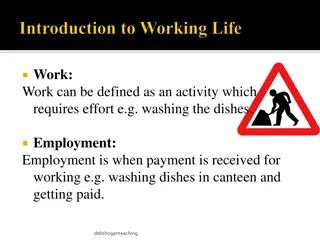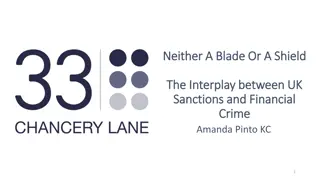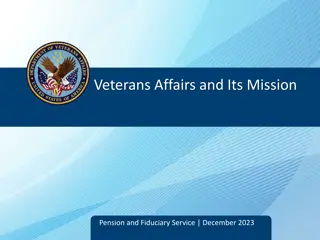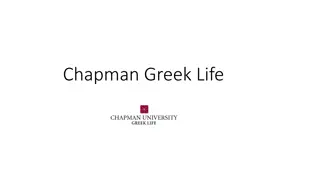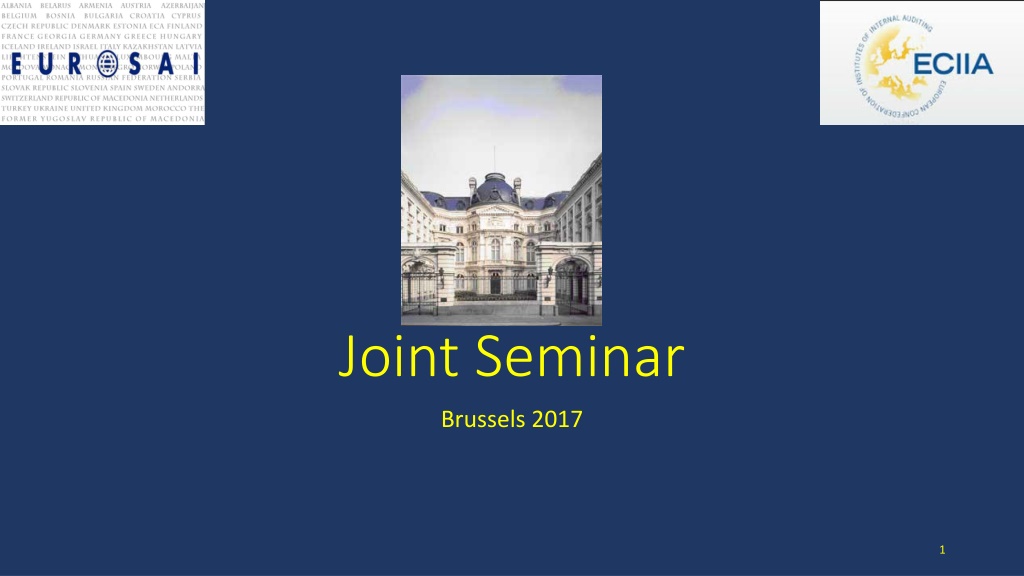
Seminar on Internal Audit Cooperation and Added Value
Explore key insights from the Joint Seminar in Brussels 2017 focusing on the value of internal audit, modes of cooperation between SAI, IA, and NCA, and enhancing governance through the Internal Audit Capability Model. Discover how cooperation and efficiency in professional practices can optimize audit information quality and save costs.
Uploaded on | 0 Views
Download Presentation

Please find below an Image/Link to download the presentation.
The content on the website is provided AS IS for your information and personal use only. It may not be sold, licensed, or shared on other websites without obtaining consent from the author. Download presentation by click this link. If you encounter any issues during the download, it is possible that the publisher has removed the file from their server.
E N D
Presentation Transcript
Joint Seminar Brussels 2017 1
Using the Work of the IA in SAI Financial Auditing Martin Abbink Audit Methodology and PracticesNCA Ton Kok Manager Financial Audit NCA Netherlands Court of Audit NCA 2
Content Vision on Added Value of Internal Audit Modes of Cooperation SAI IA and NCA - CGAS Reliance on Internal Control and Internal Audit CGAS and the Cooperation in the Field of the Financial Audit Innovation and Mutual support Challenges and Dilemmas Questions? 3
Added Value of the Internal Audit Added value IA for: 1. Line Management 2. Senior Management and Corporate Board 3. Audit Committee 4. SAI (external auditor) 4
IIAs Internal Audit Capability Model IIA s Internal Audit Capability Model Learning and improving Profession and stakeholders oriented Contributes to achieve strategic objectives 5. Optimizing Added value to Governance and Risk Control Board/Audit committee is owner Part of organization's PDCA-cycle 4. Managed (GRC oriented) Professional practices established, CEA in place Professional skills and ethics in line with standards Quality control is in place 3. Integrated (professional) 2. Infra- structure Infrastructure established (IA unit, practices and procedures) Continued reliance on individual skills and competencies Starting development of internal audit activities Dependent upon individual skills and competencies 1. Initial See: https://na.theiia.org/iiarf/Pages/Internal-Audit-Capability-Model-for-the-Public-Sector.aspx 5
Modes of Cooperation More Effectiveness In terms of quality of audit information 5. Optimizing Cooperation in professional practice Cooperation in audit function 4. Managed (GRC oriented) Coordinated single audits 3. Integrated (professional) Ad hoc single audits Alignment 2. Infra- structure Sharing of findings 1. Initial More Efficiency In terms of saved audit costs and time 6
Cooperation Level NCA/CGAS More Effectiveness In terms of quality of audit information Central Government Audit Service: 5. Optimizing Cooperation in professional practice Cooperation in audit function 650+FTE ISA-proof certifying financial audits at ministries 4. Managed (GRC oriented) Competence centre s for financial auditing, ITC, compliance, etc. Coordinated single audits 3. Integrated (professional) ISA-proof Quality Framework Ad hoc single audits Alignment Annual Clarity Report 2. Infra- structure Cooperation level NCA/CGAS Annual review by NCA Sharing of findings 1. Initial NCA/CGAS Cooperation also on development audit methodologies More Efficiency In terms of saved audit costs and time 7
Reliance on internal control and internal audit Reliance on internal control and internal audit 8
Central Government Audit Service Capacity A total of more than 650 employees with different backgrounds About 60% works within the field of Financial Audit (accountancy). The remaining 40% works either in the field of IT-audit or Operational Audit Functionally independent Independent and objective activity aimed on realizing the organizational goals by providing assurance and consulting services (advisory task) to management on the quality of governance, control, accountability and supervision Organizationally positioned at the ministry of Finance under the Secretary General (owner). The clients consist of all the ministries and subordinated bodies 9
Services of CGAS Statutory task Financial audit of the annual financial reports of the ministries and subordinated bodies. Assurance is provided with respect to the reliability of the financial statements that are included in the ministerial annual reports (judgment) Auditing financial management control systems within ministries and subordinated bodies (judgment) Audits on demand Investigations/audits and consulting assignments by request of management. It concerns requests in the field of governance, control and accountability in which the focus is aimed at policy- and business-/operational processes (e.g. IT-systems). Assignments on behalf of the European Union 10
Cooperation in the field of the Financial Audit Review of the work of the IA Risk analysis Assessment of internal control Review Audit plan (using visuals as basis for exchange of views CGAS and NCA) Review test of controls and test of transactions Evaluating Direct Access to IA s working files (TeamMate) provided to NCA Close cooperation requires mutual trust and respect 11
Innovation and mutual support Cooperation in innovation: mutual support in development of new audit methods and techniques (process mining, continuous monitoring and auditing, blockchain audit challenges) Enhancing the power of convincing the auditee of the necessary improvements in internal control, like adoption of the 3 lines of defence concepts at central government 12
Dilemmas and challenges 1. Open government: also CGAS reports are public: threat for the internal function as IA? 2. Is certifying internal audit and certifying external audit double costs for just one product? 3. Does certifying internal audit leads attention away from core business of the IA: support of line management and corporate governance (risk management and assessment of internal controls)? 4. Challenging process management due to longer lines: first finish of audit work CGAS then finish of review and audit work NCA 13
Evaluation and learning All experiences, discussions, dilemma s and challenges must be part of a cycle of evaluation and learning. The way to further improvements of the audit function at central government. More improvements benefits all 14
















